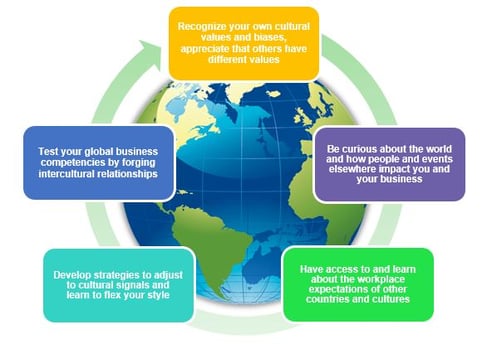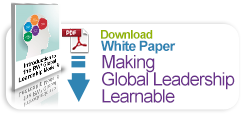
Ask yourself the following:
1. Do I consider the impact of global events on my business and marketplace?
2. When meeting people from other cultures, do I enjoy learning about their world and ask questions?
3. At work-related events, do I actively seek out conversations with people from cultures other than my own?
4. When experiencing challenges with global colleagues, do I consider if they are culturally based?
5. When developing a message, do I consider the communication preferences of the audience?
6. Do I seek feedback on my performance from peers outside my culture?
7. Do I recognize when I need to flex my style to adapt to culturally distinct environments?
If you answered yes to any of these, give yourself a gold star. If not, then use these questions to help inform your personal development plan for 2016, which I’m unofficially going to call the “Year of Curiosity” for the sake of encouraging all of us to play up our curious side. An effort to increase our knowledge of diverse cultures and our capacity for successful global interactions.
WHY CURIOSITY?
Being curious about our global colleagues, and the ones sitting in the same office, compels us to ask important questions: about themselves, their beliefs and their perspectives. Being curious is a critical component of a Global Mindset that can only broaden our cultural knowledge base and our ability to employ empathy. See below for a diagram illustrating 5 steps you can take to developing a Global Mindset.
5 STEPS TO DEVELOPING A GLOBAL MINDSET
 If you don’t find yourself naturally curious, teach yourself to ask questions and engage in “curiosity conversations” to get to know people in parts of the world that you don’t know enough about. Doing this will provide you the added benefit of deeper trust with your ‘interviewees’. It’s also essential to view foreign media and even foreign films. I happen to be a foreign film buff, so I always make recommendations to people needing a download on a new culture or country.
If you don’t find yourself naturally curious, teach yourself to ask questions and engage in “curiosity conversations” to get to know people in parts of the world that you don’t know enough about. Doing this will provide you the added benefit of deeper trust with your ‘interviewees’. It’s also essential to view foreign media and even foreign films. I happen to be a foreign film buff, so I always make recommendations to people needing a download on a new culture or country.FOCUS ON INTERCULTURAL RELATIONSHIPS
Just like learning to speak a foreign language, learning how to be effective in a global environment requires immersion experiences with people from around the world. While some of us can get this from business travel or international assignments, many of us are presented on a daily basis with opportunities to work with colleagues from around the world in a virtual setting (phone, email, instant messaging, etc.). These opportunities to forge relationships are valuable ways to test your understanding of cultural differences, and to test your ability to flex a different style, behavioral response or strategy. Of course, global professionals often report that their global network of business and social contacts are a key, lifelong benefit. Would you agree?
To really test yourself, take advantage of any visiting colleagues to get to know them, or reach out online to get to know people in your area or other areas of your business. Find mentors within leadership to help you perfect your approach to specific markets. Use CultureWizard to learn about the expectations of your colleagues around building relationships and trust so that you don’t unknowingly stifle your efforts through cultural misunderstanding, which can erode trust.
I’d also suggest going beyond your professional workplace to explore your social networks, your family, your neighbors, and take any opportunity to expand your understanding of cultural difference anywhere you can find it in 2016.
Learn about leading in the global landscape. Download our White Paper below.


